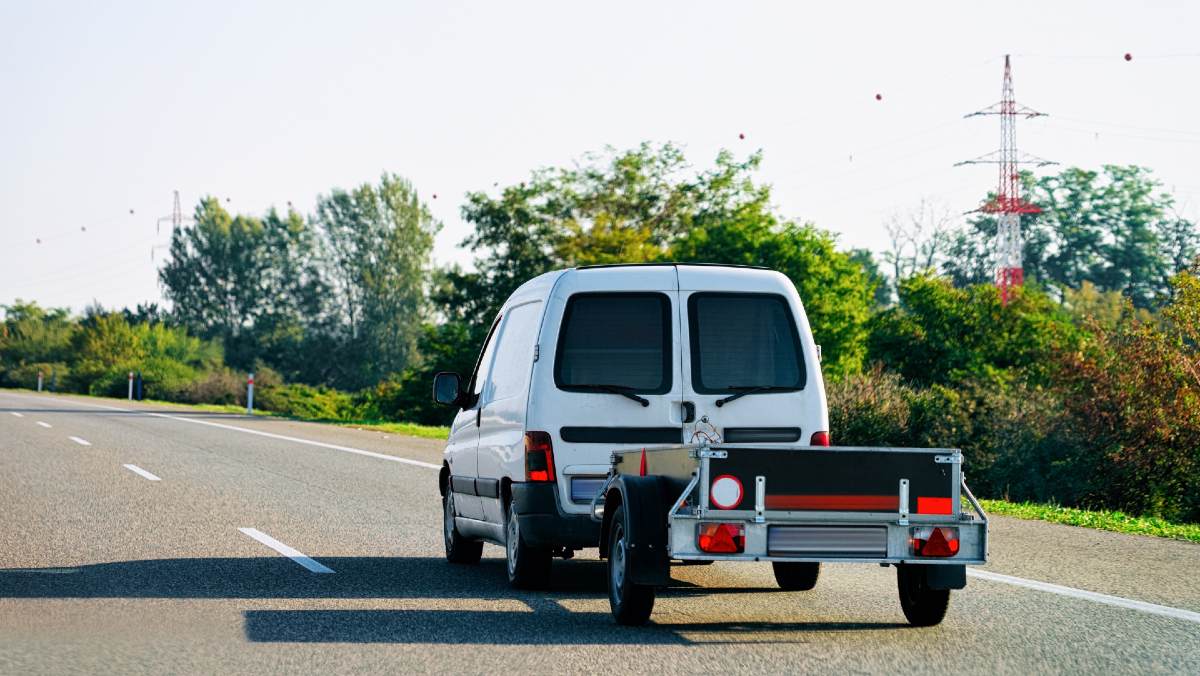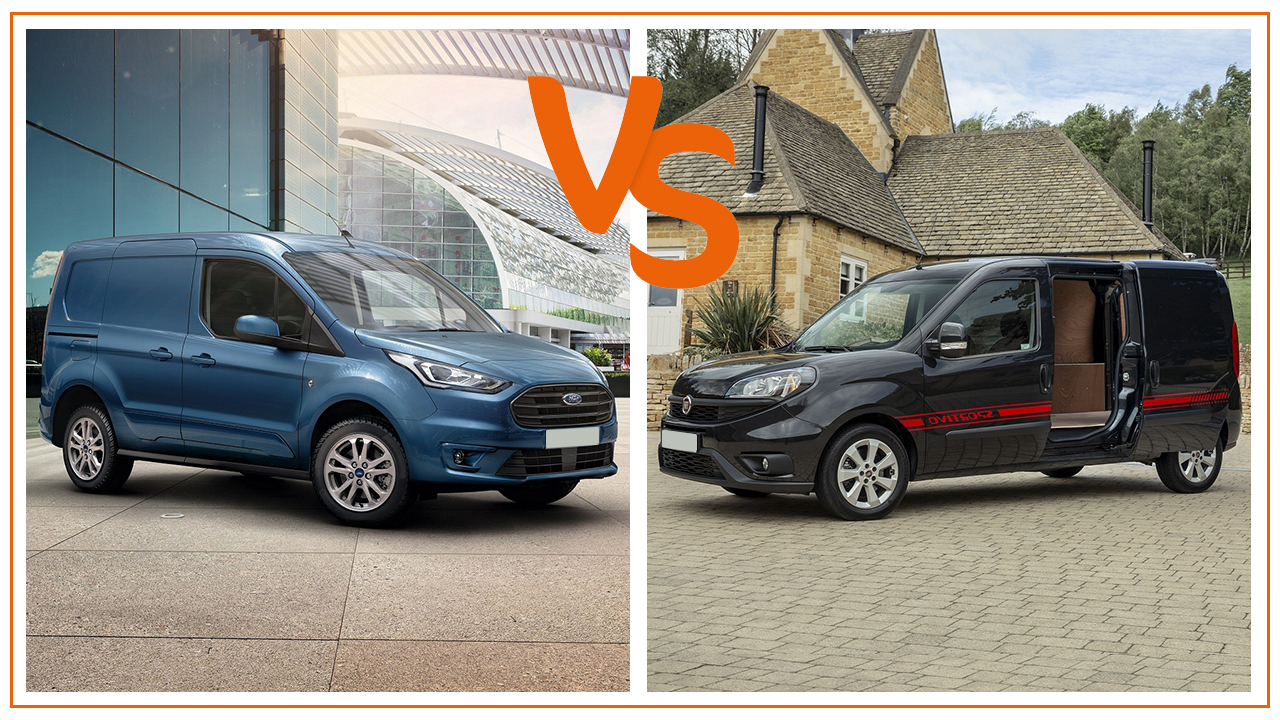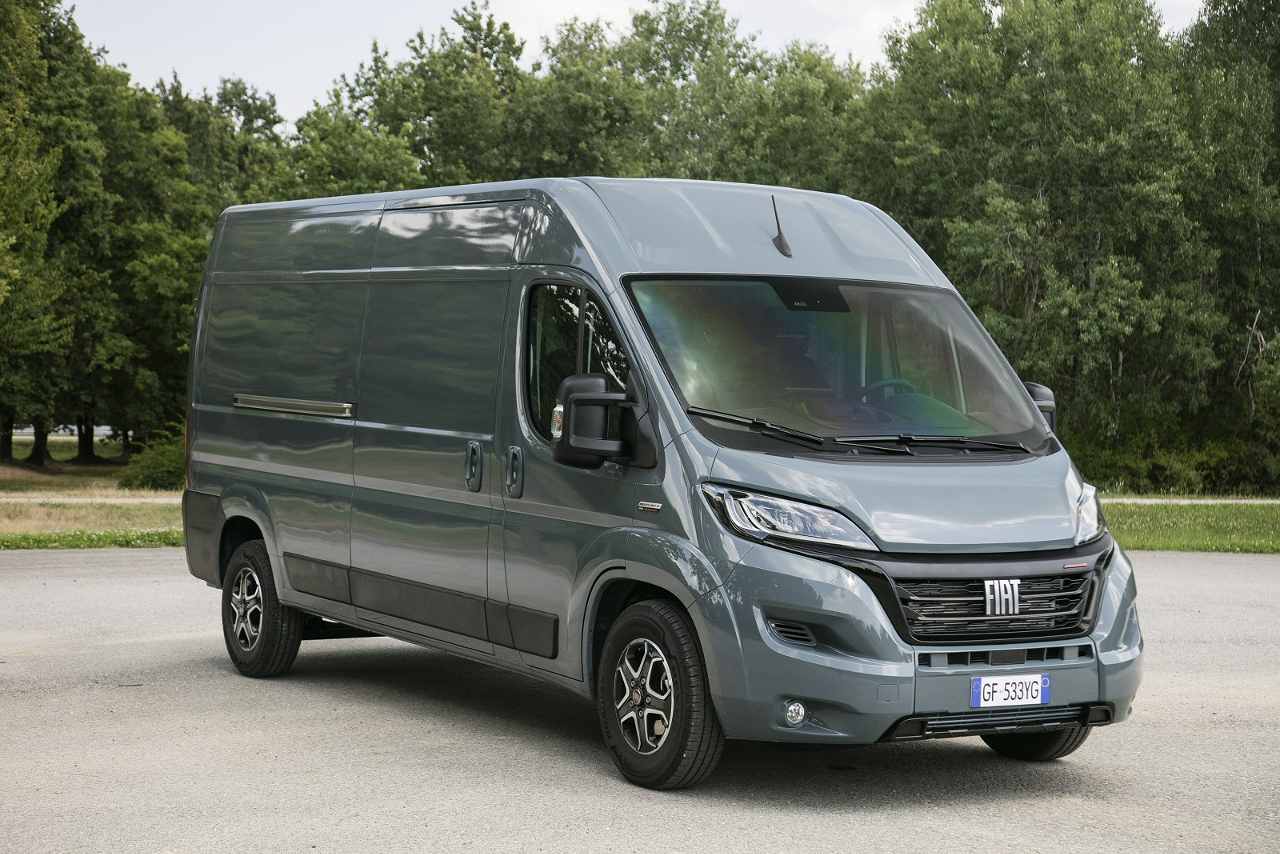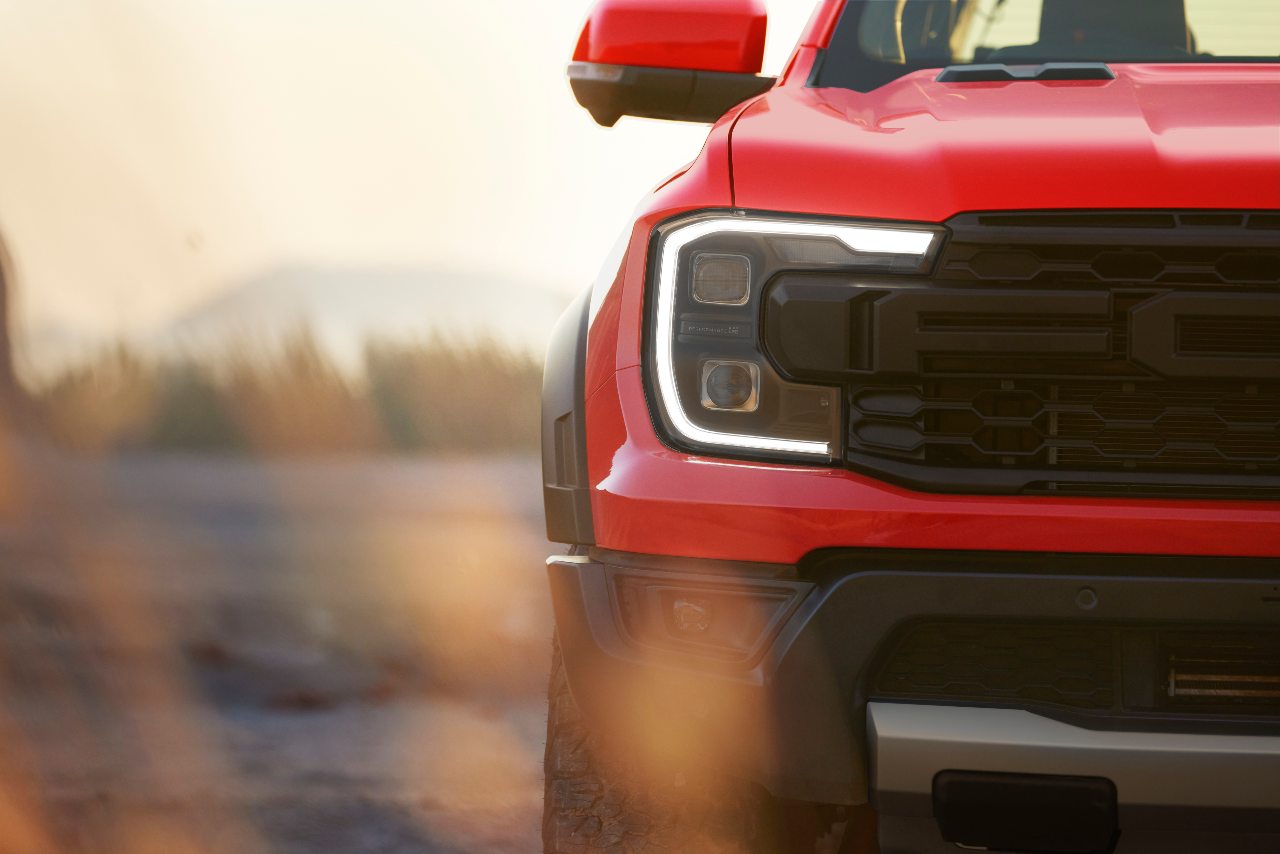Vans are light commercial vehicles, so using one to tow goods and materials in a trailer should be easy to do. However, there are few things to bear in mind, from your vehicle's rated towing weight to the type of trailer you decide to use and the various speed limits applied to vehicles towing trailers. Confused? Don't be, here's everything you need to know about towing with a van from Vanarama's Van Expert Tom Roberts.
Check The Towing Capacity Of Your Van
Let's start with the basics. You're limited from the outset by the size of trailer your van can tow and the weight of goods being towed in the trailer. Different vans are capable of different things - check the handbook to find out exact weights (this should always be your first port of call).
The towing capacity of your van cannot be any more than 85% of your vehicle's kerb weight (the weight of your vehicle with all standard equipment, a full tank of fuel, oil coolant - but does not include the weight of passengers & anything else you're carrying in the loading bay).
As this article repeatedly states, weight is always the determining factor, so check your vehicle's handbook to see exactly what the manufacturer recommends in terms of towing weight & do the sums.
Do I Need A Specific Licence To Tow?
Here's my advice: check your licence right now. If you passed your driving test before January 1997, you're already allowed to drive a vehicle & tow something so long as the combined weight does not exceed 8,250kg!
On the flip side… if you passed your driving test after January 1997, you can drive a vehicle that weighs 3.5 tonnes, tow something that weighs up to 750kg - anything heavier than that & you'll have to take another test.
What Is Gross Vehicle Weight & Gross Combination Weight?
There is some science to towing with a van, and the first place to start is to understand what the individual and combined weights of the vehicle and trailer are. It's important to point out that you must stick to them, because if you exceed either of them then you are breaking the law and will be punished if caught.
Here are the terms you need to get familiar with:
-
Gross Vehicle Weight (GVW) or Maximum Authorised Mass (MAM) is how much a vehicle or a trailer can legally weigh while you're using it on the road.
-
Gross Combination Weight (GCW) or Gross Train Weight (GTW) is the total legal weight of the vehicle, trailer and goods combined.
Helpfully, you'll find these figures on your van and trailer's chassis plate, handbooks and sometimes they'll even be noted down on the V5C registration certificate. Make sure you do the maths right – don't exceed any of the figures – and you'll be off and towing before you know it.
Check All Of your Brakes
Your van's brakes have to be in good working order before you attempt to tow a trailer, especially if you're towing an unbraked trailer, but also because it's illegal to even drive a van with bad brakes.
Braked and unbraked trailers are very simple to choose between – some trailers will need breaks, others won't, and once again it will all come down to weight. Here's the way it breaks down:
-
Unbraked: If your trailer has a GVW of 750kg or less, they're not required to have brakes. Your van's brakes will be enough to slow it down and stop.
-
Braked: If your trailer has a GVW of 751kg plus, it must be fitted with its own brakes.
Braked trailers fascinate me, primarily because of the mechanics behind the braking system they use called overrun brakes. These clever systems work automatically through a linkage directly to the tow bar and uses the trailer's inertia as the activator.
As you brake in your van, your trailer moves forward and the mechanical linkage activates the trailer brakes (the harder and faster the trailer moves against the tow bar mechanism, the harder the brakes are applied on the trailer). This keeps happening as the towing vehicle slows until both the van and the trailer have stopped – that's when the overrun brakes disengage completely ready to go again.
What Is A Tachograph & When Do I Need One?
Tachographs are devices fitted to vehicles to record how they're being used, what speed they're being driven at and how far they're being driven. These bits of data are stored on cards for a company to file in its records.
This is where things get more complicated. A company is legally required to fit a tachograph to any vehicle that weighs more than 3.5 tonnes. But, some of today's vans and pickup trucks can tow more than 3 tonnes, so will need a tachograph fitted if they're being used to tow goods.
Top Trailer Checks - Coupling & Loading
Choosing which tow bar to fit to your van will come down to the weight of the goods you need to tow. Make sure you factor in the weight of the trailer itself, and the weight of the goods you'll tow, add those together and get a tow bar rated to that weight. The most common type of tow bar in the UK is called the fixed flange ball towbar - and works by the trailer connection (which looks like a cup) being hitched onto the top of the towbar's ball to provide a secure connection between towing vehicle and trailer.
Make sure the trailer you pick can clearly display your van's registration plate and fit extender mirrors to your own vehicle's door mirrors to improve your visibility. You must also ensure that any lights fitted to the trailer work and are synced up to the towing vehicle's lights - this is usually done through an electronic connection near the tow bar.
Towing might be all about weight, but there are some safety checks you can make before a journey involving towing:
-
Check the van and the trailer connection is solid.
-
Check that the towball or pin is placed properly in their housings and don't move when you try to wiggle them with your hand.
-
Check that the towbar is level and not at an awkward angle.
-
Check that the breakaway cable is correctly attached.
-
Check that your load is tied down and evenly distributed.
Like a lot of things in life, trailers and their couplings are different, so make sure you check through the manual and don't deviate from the manufacturer's advice on how to use it properly.
Take Extra Care On The Road
The best type of towing journey is a safe one where everything and everyone gets to their destination in one piece – follow the checks and advice above and don't be shy about contacting a manufacturer directly if you have any questions.
Drive safely, drive cautiously and stick to the speed limits for a van when towing - the speed limit for any vehicle towing a trailer or caravan is 60mph, and the speed limit on single carriageway roads when towing is reduced by 10mph for all vehicles.
Be aware, be vigilant, fit extender mirrors if you need to (they help you see round the trailer you're towing) and enjoy the convenience of towing in your van.
FAQs
What's The Most A Van Can Tow?
Depends on the van - the bigger the van and the more powerful its engine, the more it can tow. The Iveco Daily can tow 3.5 tonnes without breaking a sweat though - just make sure you've got the licence to tow that much if you try it.
What's The Best Medium Van For Towing?
The Ford Transit Custom can tow 2.8 tonnes - which means it's not only available for competitive lease prices, it's a workhorse too.
What's The Best Small Van For Towing?
The Fiat Doblo Cargo and VW Caddy can both tow 1.5 tonnes. If you get one of these vans, just make sure your weight limits are legal and enjoy the ride.
What's The Best Pickup For Towing?
Most modern pickups can tow 3.5 tonnes hassle-free, which means you don't need to worry about towing capability when choosing which pickup truck to lease - choose the one you like the most instead.
For more news and insights visit the Vanarama blog, or take a look at latest van leasing offers.




